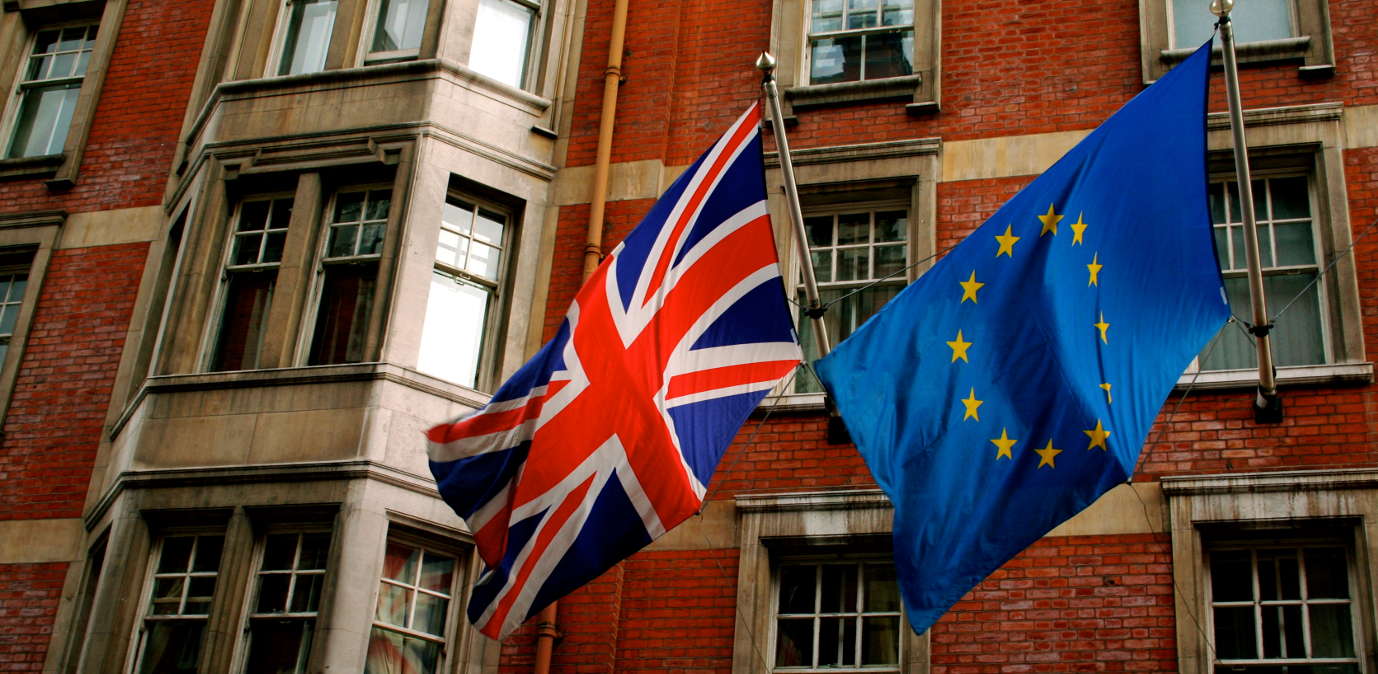Race to the tape in EU Referendum means investors need answers on implications now
by Inline Policy on 06 Apr 2016
Referendums are transformative events. Governments may come and go, but a decision to stay in or leave an economic union like the EU is an irrevocable judgement on the nation’s destiny – the most important decision in the lifetimes of voters in the UK. The implications will affect everything from the regulation of the air we breathe to the pensions we invest in. For the financial services sector, the general investment climate in the UK, as well as the contours of central bank policy on the equity banks must retain as capital buffers will be shaped by the outcome on June 23.
Currently the race is a statistical dead heat. The average of the six most recent polls from Professor John Curtice at the University of Strathclyde for YouGov puts both sides on 50%, once don’t knows are excluded. Support for Remain is strongest among younger voters, people in bigger cities, and in Scotland, but the Leave coalition of higher turnout older voters, and people in smaller towns is proving an equally formidable one.
Three in four referendums globally have resulted in a win for the more status quo option over the more radical change option, but politics is in flux across the Western world with a battle between those on one side angry with the consequences of globalisation, and others favouring the principles of pooling a degree of sovereignty in a more insecure world. Former US Treasury Secretary Professor Larry Summers describes the global economy as currently locked in an era of secular stagnation, with far lower growth, investment, and inflation than is historically normal after a downturn of the magnitude of the Great Recession. The risk is the effects of this upon wage growth, loss of economic and cultural identity, and stagnant living standards, drive voter hostility against EU political institutions and policies, and domestic political leaders supporting continued membership, resulting in the UK’s departure from the EU.
For investors and those trading in the financial services sector, the stakes could not be higher. The LSE’s Centre for Economic Performance found that on the optimistic scenario in their static economic model, retaining full access to the single market including for all services would still mean an £850 annual loss in average UK incomes per household, whereas on the pessimistic scenario, with trade in goods and services conducted solely under the WTO rules, the average loss of income per household doubles to £1,700 per annum, or 2.6%. Reduced UK trade with the other 27 states also means a lowering in UK productivity levels, already the worst in the G7. Factoring in the projected shock to productivity into the LSE model, sees per household incomes fall further, by between 6.3% or 9.5% in either scenario.
The LSE analysis finds there may be an uplift in trade with China, India and the United States, but nowhere near the degree required to make up for the reduced levels of trade with the EU post-Brexit. Being outside of the EU means the UK would not benefit from any trade agreements struck between the EU and the US, and would have reduced bargaining power and capacity outside the EU to cut deals with the US or others in the future.
Uncertainty over the UK’s future role in the EU also has very significant consequences for macro-economic policy too. Within the last month, the UK’s central bank, the Bank of England, has said the main short-term threat to financial stability was the prospect of major uncertainty leading up to and following the Referendum in June. That could feed into an upwards revision in the level of the countercyclical capital requirements on UK banks, with negative consequences for levels of lending in the wider economy. Sterling could also depreciate, and foreign direct investment may be less accommodative in a post-Brexit environment.
Key to entry to the single market for financial services is the issue of passporting, meaning that once established in one European Economic Area (EEA) state, firms are permitted unimpeded operations in trading services and goods across the EEA. Despite signing a bilateral trade agreement with the EU, Canada does not have access to the single market on financial services, and Switzerland, outside the EEA, is without unimpeded access to the single market for its financial services sector either. If the UK votes to leave, and a Swiss-style alternative arrangement could eventually be negotiated, the end to passporting would still mean UK-registered financial services companies facing the regulatory and financial costs of establishing subsidiary companies within an EEA state in order to operate within the single market. Although the Government is committed to lowering the main rate of corporation tax to 17% by 2020, the risk to financial services jobs based in the UK from potential headquartering moves to within the Single Market zone is clear in the event of exiting the Union.
So the choice facing voters on financial services issues is stark – leverage guaranteed by February’s European Council decision over any consequences further economic integration within the Eurozone might have for financial services in the UK (and underpinned by Treaty change probably in 2020), or one of five alternatives to EU membership changing utterly the future path for the UK financial sector, none of which are specified on the ballot paper voters face on June 23. Each come with problems: any Norway-style model would provide access to the Single Market but not the benefits of being part of the Customs Union, with the obligation to accept EU rules not no opportunity to shape them, and the loss of access to markets in the 53 free trade agreement areas negotiated collectively by the EU, taking years to replace individually if possible. The Swiss option gives through bilateral agreement some access to the Single Market, alongside the obligation to accept free movement of persons from the EEA, but very limited access for UK financial services to the Single Market. A Canada style free trade agreement offers even less access to the Single Market, and excludes financial services. A Turkish style customs union agreement would not provide access to the Single Market. A WTO-style relationship would mean trade between the UK and EU would revert to the WTO rules with potentially reciprocal tariffs being applied.
A Leave vote most likely would mean the imminent activation of Article 50 of the EU Treaty in the aftermath of June 23 – setting the clock ticking on a two-year period for negotiated exit from the Union. Only Greenland has left the Union previously, but with populist and nationalist movements gaining strength across Europe, a British exit may set in train a process for the further breakup of the Union. That may focus minds among the other 27 heads of government on adopting a tough stance on the nature of any relationship between a post-Brexit UK and the Union, to ward off threats of further departures.
It should also be remembered that any new or revised Treaty setting out a post-Brexit relationship between the UK and the EU would itself have to be approved by the European Parliament and go through ratification processes in all EU member states, involving referendums in the Netherlands, the Republic of Ireland and elsewhere, and perhaps being subject to searching scrutiny in the German and Czech Constitutional Courts. It would be a terrible irony if any post-Brexit deal following a UK leave referendum result was itself vetoed by voters in one of the other 27 remaining EU states.
There are big future gains for UK financial services in staying in the EU and pushing for new frontiers in Single Market reform – such as moving towards Capital Markets Union to liberalise the market for new finance. There is enough uncertainty in the future of the financial sector without adding to it with avoidable geopolitical risk and uncertainty over the future access to the Single Market. That is why most of the financial services sector will be hoping for a positive EU Remain vote from British voters declared early in the morning of June 24.
Photo(CC BY-SA 2.0)
Topics: European Politics, UK politics, Financial Services Regulation, Economic policy







Comments